OpenBMC is a new initiative that has gained a lot of traction. Its goal is to replace proprietary baseboard management controller (BMC) firmware with a more open standard. That also means one can have servers from companies like IBM or Supermicro with the new management interface, and there will be a different default administrator username and password.
OpenBMC Default Login Credentials and root Password
The default login that is used by OpenBMC out-of-the-box is:
- Username: root
- Password: 0penBmc
Key there is that the “O” in Open is actually the digit zero “0”. Also, one may want to type “BMC” for the second part, but only the “B” is capitalized.
If you do see an OpenBMC login screen, there is a good chance that it has a unique vendor-specific password. Alternatively, it may be changed on the first boot. We covered Why Your Favorite Default Passwords Are Changing several years ago.
Still, we have managed to successfully use the default password on a number of servers.
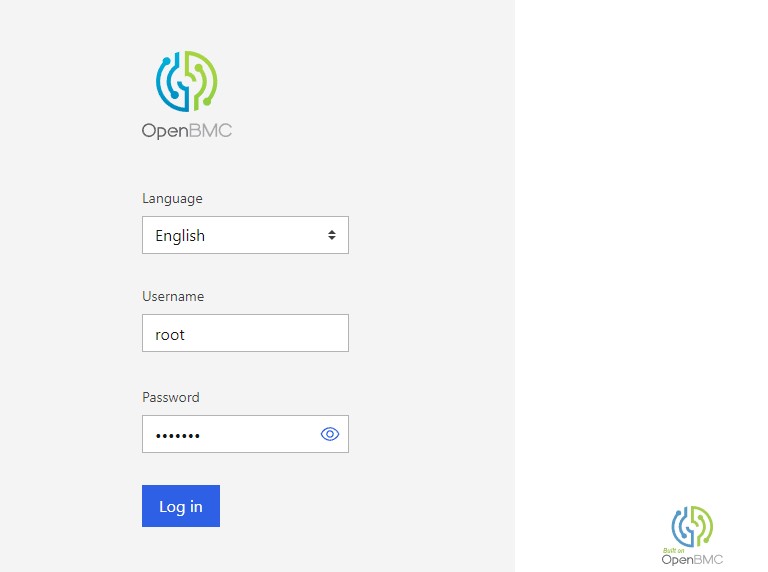
That includes the pre-production samples from Supermicro, the ARS-210M-NR and ARS-210ME-FNR as well as a system we logged into from IBM, and from a smaller server vendor. It is sometimes a pain for folks that try ADMIN/ ADMIN, Administrator/ ADMIN, root/ calvin or something like that to login to a server when they search for a vendor’s name and the default password.
Final Words
These days, the default password should be printed on a label on the server, but if you see OpenBMC and want to try a default, then root / 0penBmc is likely your best bet.
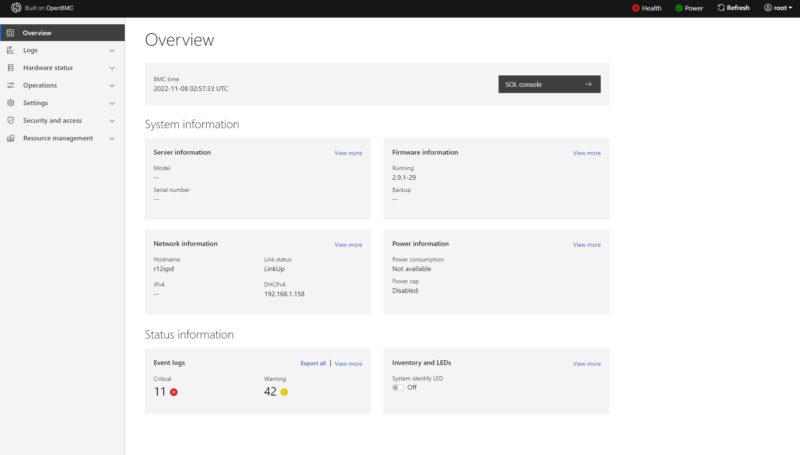
Overall, OpenBMC is a very cool interface that works surprisingly well. We hope to see more of the new open management interface in the future as it works better than some vendor’s proprietary solutions at this point.

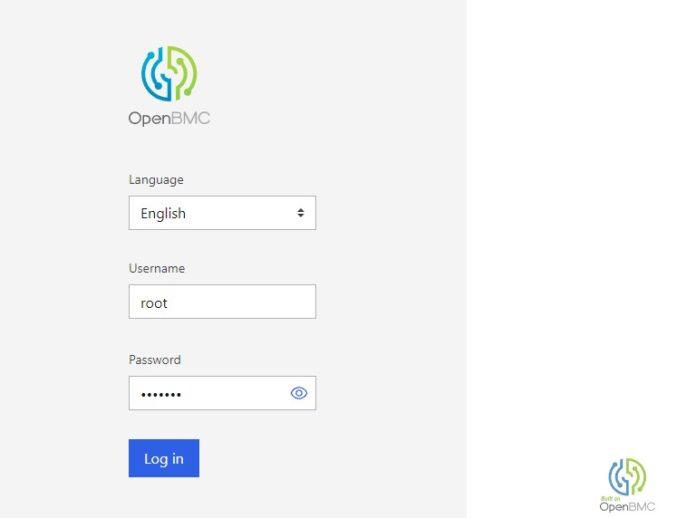
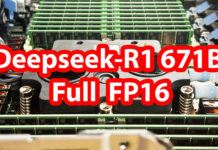

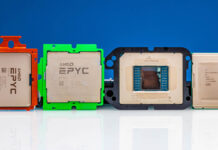
I actually contribute to OpenBMC for my job! Very fun to see you talking about it here! Glad to see you like the EWS (Embedded Web Server) :D
Is there a list or way to determine whether specific motherboards are supported by OpenBMC? E.g. Supermicro boards with an AST2400 BMC?
@SystemBuilder the AST2400 and newer are supported but how a vendor wires up to it varies so it requires vendor support. You can build OpenBMC and clip on and flash… but its unlikely to work.
OpenBMC may be cool in the future. Hard to get excited about it today, though, as it is basically impossible for a non-expert to tell if there is support for existing servers. I would love to replace the BMC on my existing supermicro and ASRock Rack servers with something more open and consistent, but am not looking for a week long research exercise.